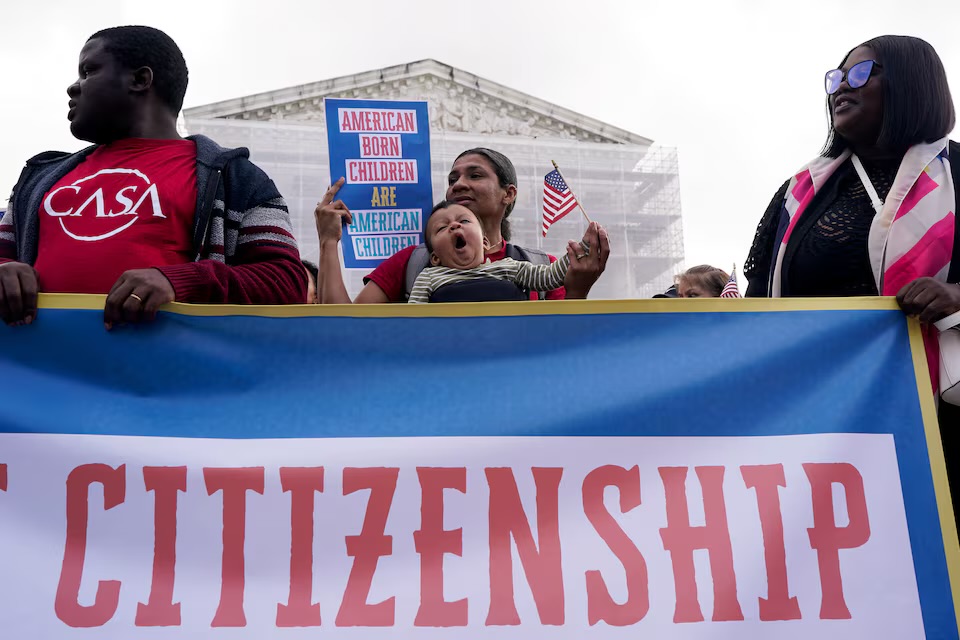The U.S. Supreme Court wrestled on Thursday over Donald Trump’s attempt to broadly enforce his executive order to limit birthright citizenship, a move that would affect thousands of babies born each year as the Republican president seeks a major shift in how the U.S. Constitution has long been understood.
The justices are considering the administration’s emergency request to scale back injunctions issued by federal judges in Maryland, Washington, and Massachusetts blocking Trump’s directive nationwide.
The judges found Trump’s order, a key part of his hardline approach toward immigration, likely violates citizenship language in the U.S. Constitution’s 14th Amendment.
U.S. Solicitor General D. John Sauer argued that Trump’s order was protecting the meaning and value of American citizenship. The case is unusual in that the administration has used it to argue that federal judges lack the authority to issue nationwide, or universal, injunctions, and have asked the justices to rule that way and enforce Trump’s directive even without weighing its legal merits.
Trump signed his order on January 20, his first day back in office. It directed federal agencies to refuse to recognize the citizenship of U.S.-born children who do not have at least one parent who is an American citizen or lawful permanent resident. The plaintiffs argued that Trump’s directive violated the 14th Amendment, which long has been understood to confer citizenship on almost anyone born on U.S. soil.
The 14th Amendment’s citizenship clause states that all “persons born or naturalized in the United States, and subject to the jurisdiction thereof, are citizens of the United States and of the state wherein they reside.” The 14th Amendment overrode an infamous 1857 Supreme Court decision called Dred Scott v. Sandford that had denied citizenship to Black people and helped fuel the Civil War.
Sauer told the justices that Trump’s directive “reflects the original meaning of the 14th Amendment, which guaranteed citizenship to the children of former slaves, not illegal aliens or temporary visitors.” The court has a 6-3 conservative majority, including three justices appointed by Trump during his first term as president.
The justices asked a wide range of questions, some focusing on the validity of universal injunctions, while others probed the legality of Trump’s order and how courts can stop a presidential action that is illegal without universal injunctions. Liberal Justice Sonia Sotomayor said she believes Trump’s order violates multiple Supreme Court precedents concerning citizenship.
Sotomayor said that if Trump’s order goes into effect, thousands of children would be born in the United States without citizenship, rendering some of them stateless because of policies in the home countries of the parents and left ineligible for government services in the United States. More than 150,000 newborn children would be denied citizenship annually if Trump’s order is allowed to stand, according to the plaintiffs.
Trump’s order was challenged by Democratic attorneys general from 22 states as well as individual pregnant immigrants and immigrant rights advocates. The administration contends that the citizenship clause does not extend to immigrants in the country illegally or immigrants whose presence is lawful but temporary, such as university students or those on work visas.
Read more: US-based Nigerians panic over Trump’s mass deportation blitz



